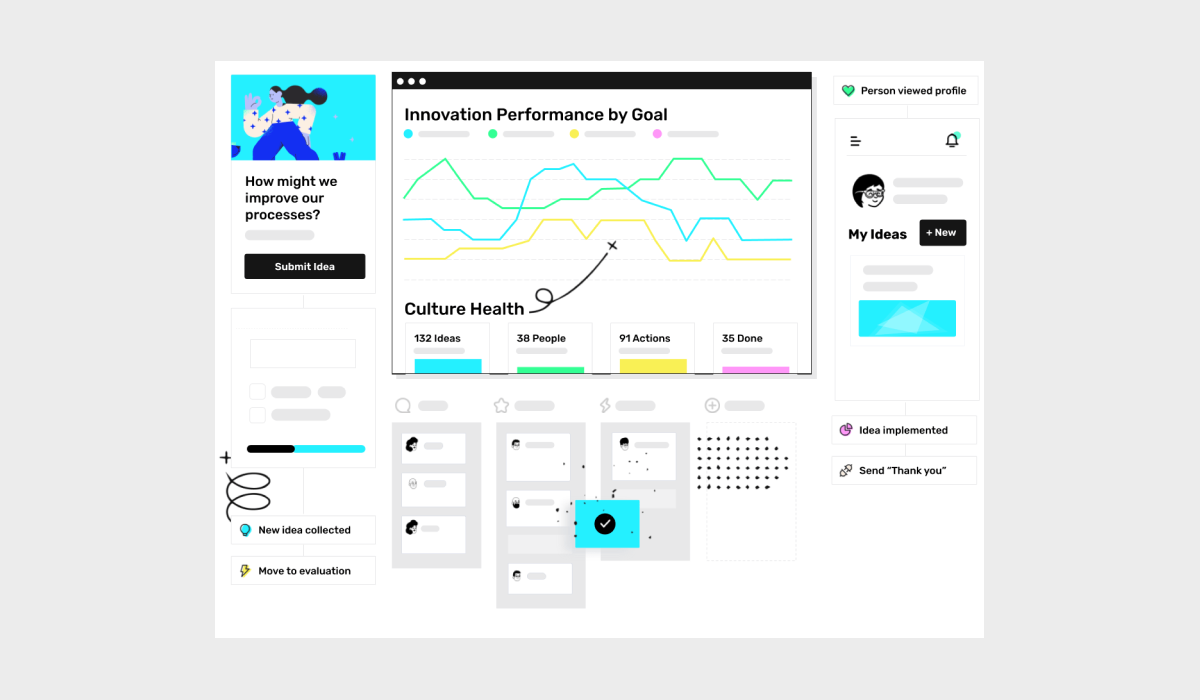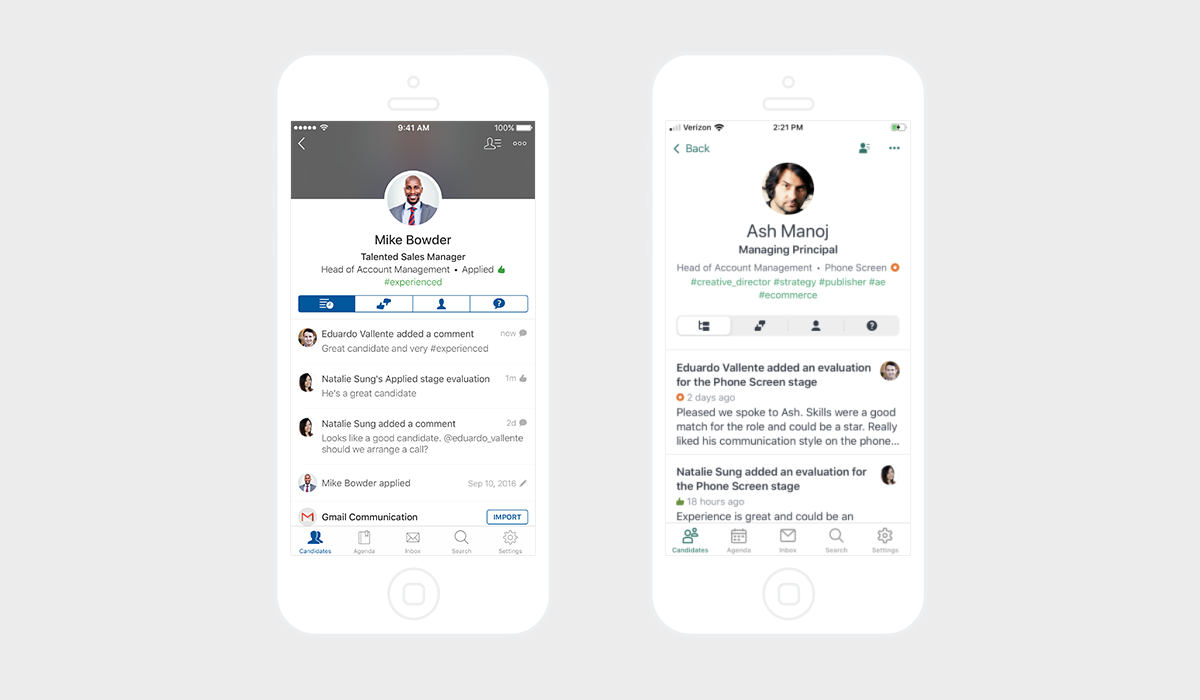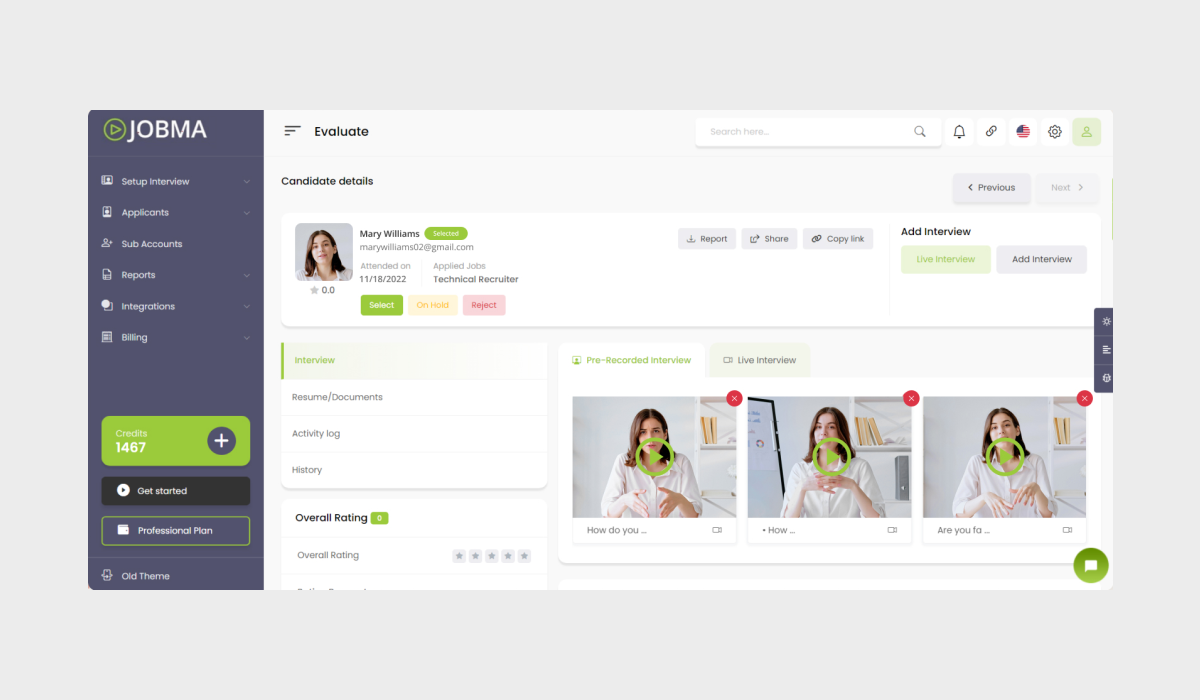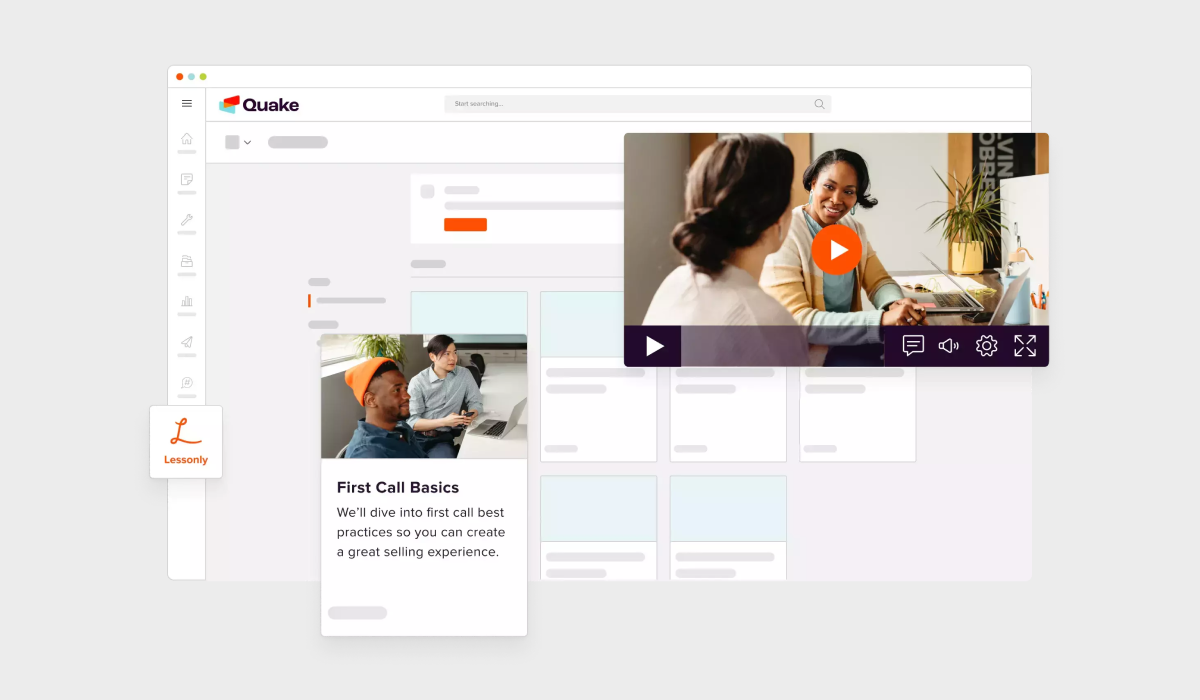Technology for Recruiting Millennials and Gen Z
The demand for young talent has become an important consideration for organizations in the fiercely competitive job market today. Millennials and Gen Z are quickly making their mark in the corporate world – they bring unique perspectives, drive technological changes, and promote cultural shifts. Companies need to create a work culture that attracts such young talent. A technology-first attitude is a significant factor organizations should consider, as these generations have grown up in a technology-reliant world. As far as technology is concerned, recruitment is no exception. Good news – finding the right talent has only gotten easier with assistance from technological tools and artificial intelligence.
Why is Young Talent Important for Your Organization?
Some organizations might consider recruiting young talent as a risk due to their limited professional experience and the potential for higher turnover rates. But, if we look at the bright side, it could be a game-changer for the companies, because of several reasons. Let’s dig deeper into various benefits emerging workforce can bring to the business:
Fresh Perspectives
Young employees have creative ideas and mindsets. Fresh perspectives are important for organizations as they foster innovation, promote growth, and also adapt to dynamic market conditions. They bring digital fluency and keep up with market insights. It enables organizations to use technology properly and stay ahead in a rapidly growing industry. Additionally, their perspectives on diversity and inclusion, entrepreneurial mindset, and social consciousness promote innovation, collaboration, and a culture of continuous learning within the organization.
Workforce Development
Young people, especially Gen Z, often join companies right after their studies. They don’t have a lot of experience, but this also means they’re open to learning everything from scratch. It ultimately allows companies to train them according to their specific needs.
Technology Adoption
In today’s rapidly new digital landscape, technology and tools at the workplace are constantly advancing. Employees should also stay updated and adapt to these changes to remain competitive and increase their productivity. Young generations are digital natives with technology at their fingertips. It means they can easily adopt different technologies and eventually impact the business positively.
What do Millennials and Gen Z want?
Let’s find out what these tech-savvy individuals expect from their employers:
Emphasis on Well-being
Both millennials and Gen Z seek companies that prefer their well-being – not only physical health but also mental well-being. Focusing on mental well-being at work boosts employee performance, and resilience, and creates a good environment for growth. Many organizations also offer wellness programs to address physical health. It is equally important to focus on mental health benefits to attract and retain young talent. Mentally well employees perform better at their jobs, stay strong during challenges, and have more opportunities for personal growth. These wellness programs help attract and keep talented young workers who value their well-being, leading to a happier and more successful organization overall.
Work-Life Balance and Flexibility
Gen Z and millennials prefer workplaces with flexibility and work-life balance. They highly value flexible jobs with bright careers as they prioritize personal well-being alongside professional growth. The desire for flexibility includes different things like being able to work from anywhere, having flexible hours, and a culture that encourages a balance between work and personal life. Irrespective of the working environment, companies should ensure that they offer both flexibility and work-life balance.
Learning and Development Opportunities
Most millennials prioritize development opportunities in job selection. According to LinkedIn’s Workplace Learning Report, the youngest workers (ages 18 to 34) are most likely to value opportunities for career growth, learning as well as skill building. Strong learning and development programs help millennials excel in their current roles by equipping them with essential skills and adaptability to thrive in a competitive job market.
How to use technology to recruit and retain young talent?
Technology has a major impact on the modern recruitment and retention of young people today. Let’s take a look at how companies can use technology for the same:
1. Mobile-friendly Recruitment Platforms
According to Appcast’s 2022 Recruitment Marketing Benchmark Report, over 68% of job search clicks were made through mobile devices. This shows the importance of ensuring that digital recruitment platforms are mobile-friendly and readily accessible. Companies should also make ATS platforms accessible and mobile-friendly as it helps them in meeting the changing needs of modern recruitment.
2. Employer Branding
Companies can promote their employer brand and contact young talent using social media platforms such as Linkedin, Instagram, TikTok, and Twitter. This tactic allows companies to reach out to a wide pool of audiences, hence leading to long-term success in this competitive market. With the help of such content, they can promote their culture and success stories. Also, it helps them analyze and measure the impact of their efforts.
3. Video Interviews and Online Assessments
Using video interviewing platform and online tasks in the hiring process saves recruiters a lot of time and effort. These platforms also meet candidates’ tech-savvy expectations as most young employees, especially Gen Z, prefer flexibility when they are interviewing from different locations. Video interviews allow candidates to show their true selves in front of the interviewer. The best part about using this method is that it also avoids biases in the hiring process, enabling fair evaluations.
4. Learning and Development
Young talent will choose a workplace that values learning and development. Organizations can also make use of technology-based learning platforms like learning management systems offering personalized learning experiences. This will help millennials and Gen Z excel in their current role and contribute better to the current organization. Incorporating interactive elements and gamification can eventually make the learning process even better.
5. Employee Engagement Platforms
Employee engagement platforms foster a strong sense of belonging and community among employees. These platforms employ features such as social recognition tools, short-form video clips demonstrating company culture, virtual team-building activities, and internal communication channels. By leveraging these platforms, organizations can create a positive and engaging work environment, particularly for younger employees.
Conclusion
Millennials and Gen Z bring fresh perspectives, technological fluency, creativity, and more that drive companies forward. By catering to their needs for well-being, work-life balance, and continuous learning, organizations can attract and retain such valuable individuals. Modern recruitment practices and employee engagements further enhance the organization’s ability to connect with young talent and create a dynamic work environment. Moreover, investing in the growth and development of young employees is a great business strategy and a catalyst for long-term success.







